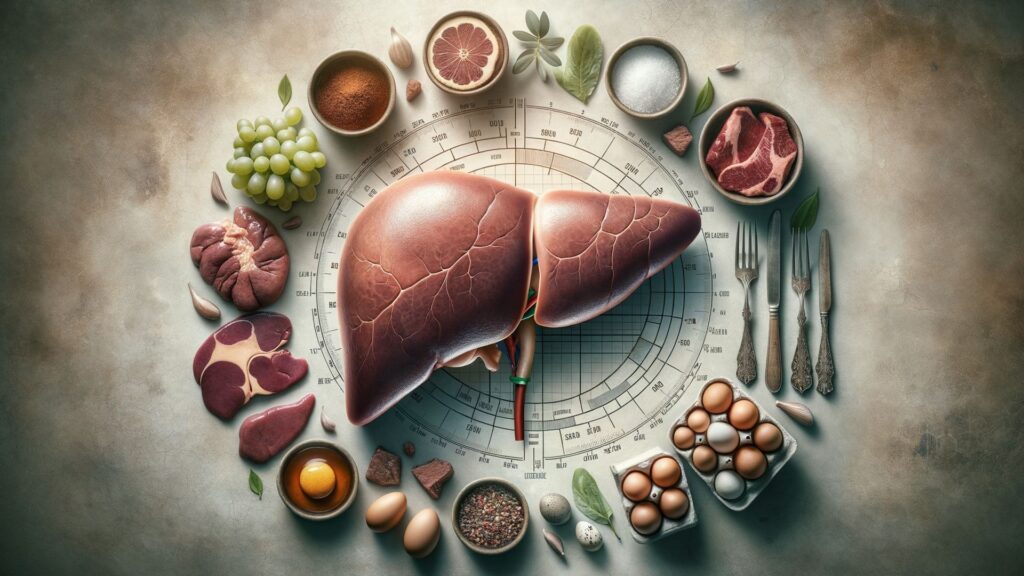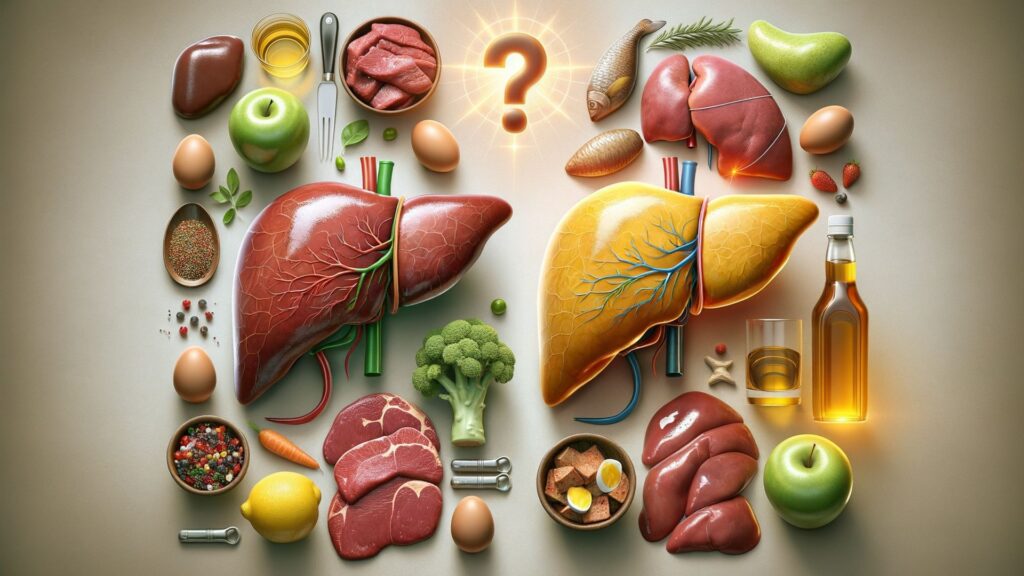Liver Health on the Carnivore Diet: Managing Fatty Liver
The Carnivore diet, a dietary approach centered around animal products, has garnered attention for its potential effects on liver health. Understanding the impact of this diet on liver function is crucial for individuals following it. Let’s delve into how the Carnivore diet influences liver health and ways to manage fatty liver on this dietary regimen.
 How does the carnivore diet impact liver health?
How does the carnivore diet impact liver health?
High meat consumption, a hallmark of the Carnivore diet, can have various effects on liver function. The liver plays a pivotal role in metabolizing proteins from meat, and the excess intake may strain this organ. Additionally, red meat, a significant component of the Carnivore diet, has been linked to the promotion of fatty liver due to its high saturated fat content.
Managing fatty liver while following the Carnivore diet requires attention to the quality and quantity of meat intake. Opting for lean cuts of meat and incorporating a variety of animal products can help maintain liver health on this dietary plan.
Can the carnivore diet cause fatty liver disease?
Fatty liver disease is a condition characterized by the accumulation of fat in liver cells. While the Carnivore diet primarily consists of animal products, the link between this diet and fatty liver disease is complex. Meat consumption, especially red meat, has been associated with an increased risk of fatty liver due to its impact on lipid metabolism in the liver.
To prevent fatty liver disease while on a Carnivore diet, individuals should consider the sources and preparation methods of meat. Monitoring the intake of processed meat and incorporating omega-3 fatty acids from sources like fish can help mitigate the risk of fatty liver development.

Benefits of the Carnivore diet for liver health
Despite concerns about fatty liver, the Carnivore diet can offer certain benefits for liver health. A meat-heavy diet provides essential nutrients like fatty acids that support liver function and detoxification processes. Comparatively, animal products may offer unique advantages over plant-based foods in promoting optimal liver health.
Understanding the implications of the Carnivore diet on liver health underscores the importance of balancing meat consumption with other food groups for overall well-being.
Understanding the Carnivore diet’s impact on liver function
In the context of liver health, a high diet rich in red meat can potentially increase the risk of conditions like cirrhosis. Processed meats, often included in the Carnivore diet, may have detrimental effects on liver health due to their additives and high sodium content. Additionally, the diet’s influence on liver function can extend to impacting heart disease risk factors, highlighting the interconnectedness of these health aspects.
Best practices for maintaining a healthy liver on the Carnivore diet
To ensure optimal liver function while following the Carnivore diet, balance and moderation in meat consumption are key. Adopting a varied diet that includes different animal products and ensuring adequate intake of essential nutrients can help prevent nonalcoholic fatty liver disease. Regular monitoring of liver enzymes and health markers is advised to track the impact of the diet on liver health.
Making dietary adjustments and staying mindful of liver health implications can support individuals in maintaining a healthy liver while embracing the Carnivore diet lifestyle.

Carnivore Diet And Liver Health Frequently Asked Questions:
Q: What is the carnivore diet and how does it relate to liver health?
A: The carnivore diet is a diet that primarily consists of animal products like meat, fish, and eggs, with little to no plant-based foods. Understanding the carnivore diet is crucial when considering its impact on liver health.
Q: Can following the carnivore diet lead to fatty liver?
A: While the carnivore diet is a high-protein diet that may help some people manage conditions like non-alcoholic fatty liver disease, it may also lead to an increase in liver fat and possibly cause fatty liver in some individuals.
Q: Are there potential benefits of the carnivore diet for improving liver health?
A: Some proponents of the carnivore diet claim that it can improve liver health by reducing liver fat and damage. However, more research is needed to fully understand the diet’s impact on liver health.
Q: How does the carnivore diet differ from other diets like the Mediterranean diet in terms of liver health?
A: The carnivore diet is a highly restrictive diet that focuses on meat consumption, while the Mediterranean diet includes a variety of plant-based foods and is considered more balanced. The impact of these diets on liver health may vary.
Q: What is the potential impact of the carnivore diet on managing non-alcoholic fatty liver disease?
A: Some studies suggest that the carnivore diet’s potential to reduce liver fat and improve other health conditions may make it beneficial for managing non-alcoholic fatty liver disease. However, it is essential to consult with a healthcare provider before making significant dietary changes.
Q: Is the carnivore diet considered a fad diet when it comes to liver health?
A: While the carnivore diet has gained popularity in recent years, it is still considered a fad diet by many experts due to its restrictive nature and limited evidence supporting its long-term health benefits, including its impact on liver health.
Q: How can one manage liver health while following the carnivore diet?
A: To maintain liver health while on the carnivore diet, individuals should monitor their fat intake, ensure they are consuming enough nutrients, and consider regular check-ups with a healthcare provider to assess liver function.




